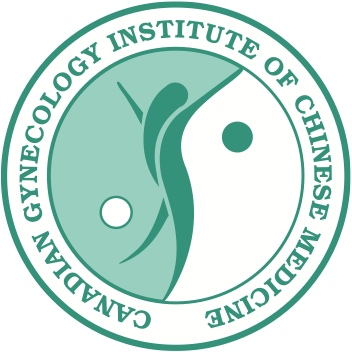PMS- Pre Menstrual Syndrome
A very common issue among women of reproductive age, premenstrual syndrome encompasses physiological and mental changes before menstruation such as irritability, susceptibility to rage, nervousness, edema, diarrhea, headache and distending pain in the breasts. The majority of women experience some mood and behavioural changes associated with the menstrual cycle, and many women seek some form of self-care for self-diagnosed PMS. About 3-5% of women suffer from symptoms so severe that they qualify for a diagnosis of premenstrual dysphoric disorder (PMDD).
The underlying causes involve an imbalance of estrogen and progesterone, excess of ADH (alsdosterone), hypoglycemia, psychogenic factors and disturbances between the interaction of central opioids and catecholamines. There are no specific hormone levels or markers associated with PMS.
PMS According to Chinese Medicine
According to Chinese Medicine, the symptoms of PMS are mainly caused by the emotions affecting the smooth flow of the Liver Qi (energy). It is also related to dysfunction of the spleen and the kidneys.
Liver Qi stagnation is responsible for the symptoms of the breast and chest. Liver qi stagnation and Liver fire with Yin deficiency is responsible for causing emotional and neurological symptoms such as irritability, depression or headache. When the spleen is affected by an excessive liver or when there is Spleen and Kidney deficiency alone, water accumulates and transforms into phlegm which rises to the head and causes vertigo, dizziness, diarrhea or edema.
Common TCM Patterns of PMS
-
Liver Qi stagnation transformed into fire
-
Spleen and Kidney Yang deficiency with water retention
-
Liver and Kidney Yin deficiency with hyperactive Liver Yang
-
Qi and Blood deficiency
-
Blood stasis
Nutritional deficiencies that may be making your PMS worse:
Magnesium Deficiency:
People are chronically deficient in magnesium due to poor soil and mineral depletion in the soil, filtered water and just not eating enough foods high in magnesium. The average dietary intake of magnesium is 250mg (in the US) while the minimum daily intake is between 320 to 420mg per day. All refined grains such as white bread, rice and pasta are stripped of their magnesium. Stress is another enemy to magnesium because causes us to waste our magnesium.
It does matter even if we are a little deficient because magnesium is at the heart of many biochemical reactions all over the body. It is involved in ATP production (cellular energy) and it is present in every cell type in every living thing. Over 300 enzyme reactions require magnesium for their functioning. The bones also depend on magnesium as it is the counter or balancing ion for calcium and potassium in the muscle cells, including in the heart. Most people are deficient in magnesium at the time of a heart attack. It is also an important mineral in the regulation of blood pressure.
Magnesium is an old home remedy for depression, insomnia, muscle cramps, headaches and restlessness. It seems to act on many levels within the hormone system because it regulates the stress response. Magnesium can suppress the ability of the hippocampus to stimulate the release of stress hormones, it can reduce the release of ACTH (the hormone that signals the adrenal glands to secrete cortisol and adrenaline), and it can reduce the responsiveness of the adrenal glands to ACTH. Finally, magnesium can act at the blood brain barrier to prevent the entrance of stress hormones into the brain.
Magnesium levels naturally fluctuate during a woman’s cycle. During the second half of the cycle when estrogen and progesterone are higher, magnesium levels tend to drop even more. It is very important to supplement with magnesium in the second phase of the cycle. This may be why women crave chocolate when they are experiencing PMS symptoms. The best way to supplement with magnesium is transdermally-or through the skin. The common epsom salts are more technically called magnesium sulphate, which are good, but magnesium chloride (magnesium flakes) is better absorbed-in a bath. It is also recommended to apply and massage int the skin magnesium oil-which is just concentrated magnesium chloride water after a bath with magnesium flakes. Why take transdermal (through the skin) magnesium? Oral magnesium in its different forms are not absorbed in high enough doses without causing laxative effects – diarrhea. There is some evidence that the absorption of magnesium internally depends on the amount in the intestines after 12 hours. If higher doses are causing diarrhea and things are being moved through the intestines more quickly, this will have a negative impact on the amount of magnesium that is actually absorbed. Medicinal doses cannot be achieved by oral supplementation.
Iodine Deficiency:
Iodine is not a mineral or a vitamin, but it classified as chemical element in the halogen category. It is essential an essential element needed in our body, it’s most famous association is the thyroid gland. Iodine is a precursor for the thyroid hormones T4 and T3. A lack of iodine available from the blood can lead to thyroid disorders such as hypothyroid (low functioning) and hyperthyroid (over functioning). Although iodine is important for the proper thyroid functioning, most of the iodine in the body (70%) is found in other areas of the body such as the eyes, thymus, salivary glands, intestinal lining, breast tissue, and cervical lining. Only around 3% of iodine in the body is actually used by the thyroid.
Relating to PMS and the menstrual cycle, it has been observed that when there is an iodine deficiency, estrogen dramatically increases, but not in balance with everything else.
Supplementing with a good quality iodine such as Nascent Iodine can improve PMS symptoms, especially breast tenderness that is associated with fibrocystic breasts.
